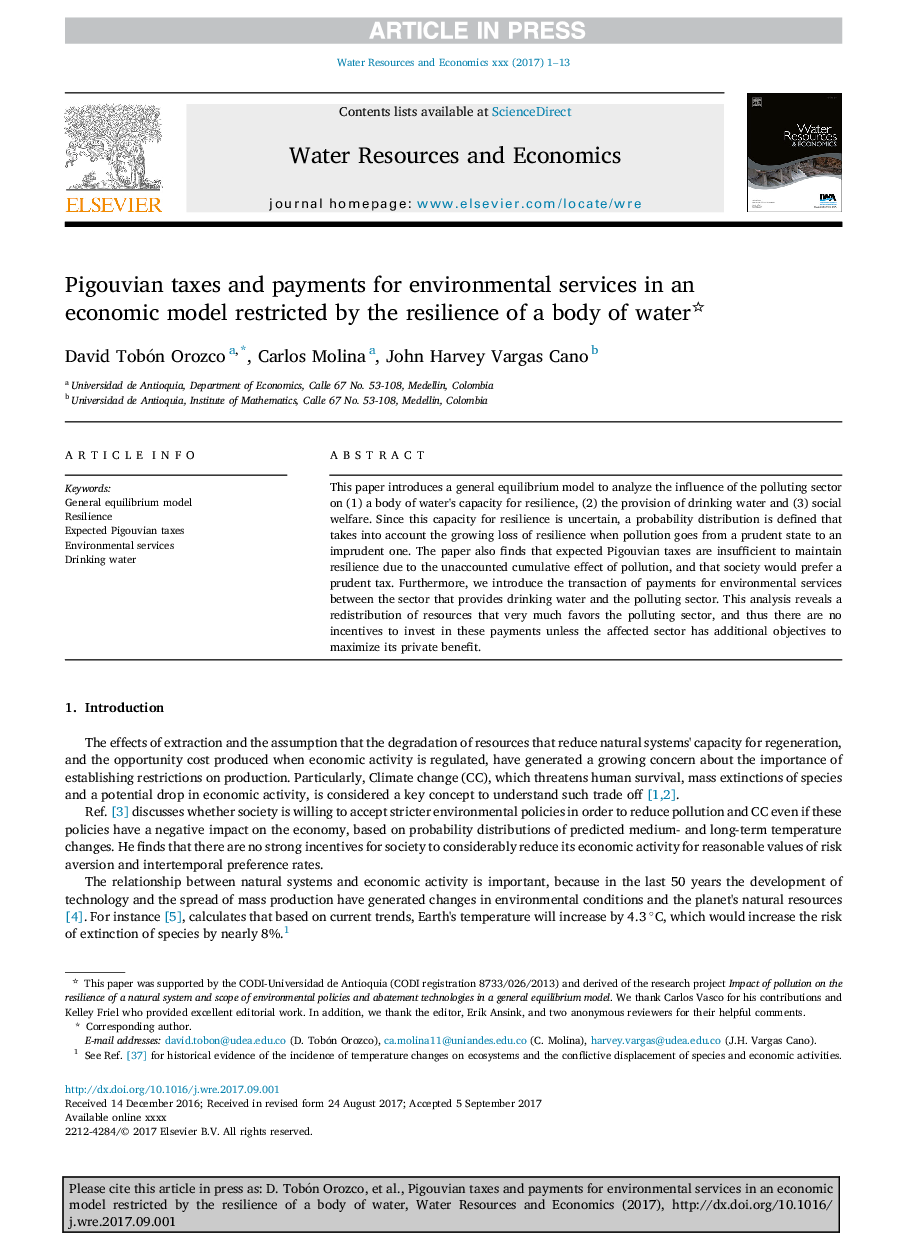| Article ID | Journal | Published Year | Pages | File Type |
|---|---|---|---|---|
| 7390959 | Water Resources and Economics | 2017 | 13 Pages |
Abstract
This paper introduces a general equilibrium model to analyze the influence of the polluting sector on (1) a body of water's capacity for resilience, (2) the provision of drinking water and (3) social welfare. Since this capacity for resilience is uncertain, a probability distribution is defined that takes into account the growing loss of resilience when pollution goes from a prudent state to an imprudent one. The paper also finds that expected Pigouvian taxes are insufficient to maintain resilience due to the unaccounted cumulative effect of pollution, and that society would prefer a prudent tax. Furthermore, we introduce the transaction of payments for environmental services between the sector that provides drinking water and the polluting sector. This analysis reveals a redistribution of resources that very much favors the polluting sector, and thus there are no incentives to invest in these payments unless the affected sector has additional objectives to maximize its private benefit.
Related Topics
Life Sciences
Agricultural and Biological Sciences
Aquatic Science
Authors
David Tobón Orozco, Carlos Molina, John Harvey Vargas Cano,
